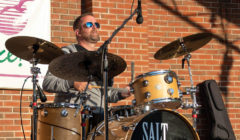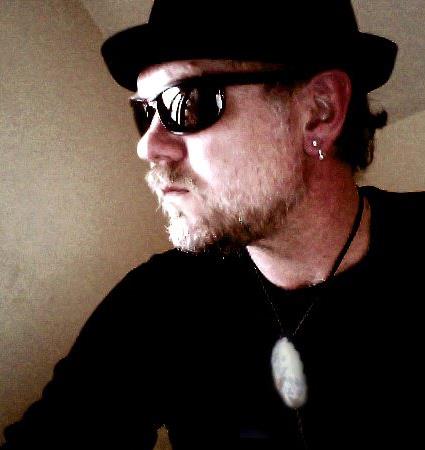A Chat at the Kit with Phil Smith
I became friends with Phil in about twelve bars. He had answered an ad I had placed seeking a percussionist-drummer. He came over. We chatted a bit. Played a Tom Petty song. Nice.
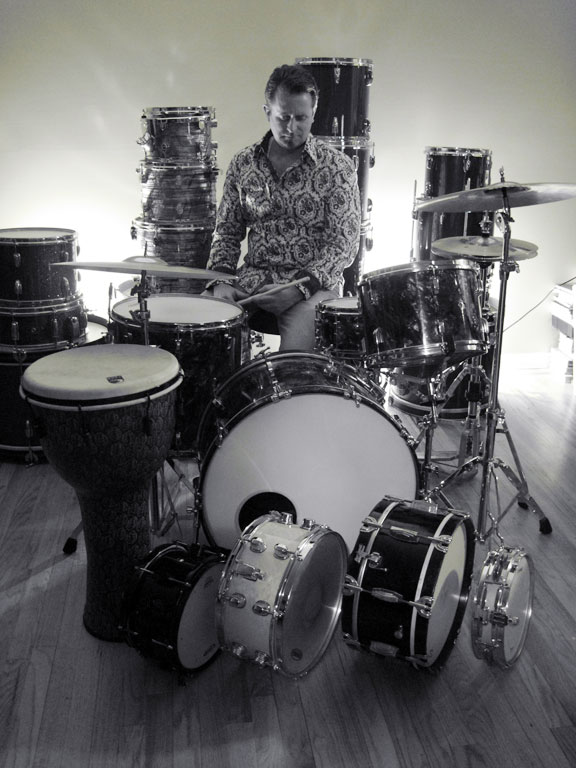
Phil Smith A player’s player.
As we entered verse two I remember each of us nodding —acknowledging that the mutual stuff that musicians need to work together is happening— and formed musical partnership, in that short space. We also, just happened to be entering the Syracuse music scene as well. We’ve been playing ever since, about 6 years later.
He lays back and plays it cool. He’s modest and understated. He does not seek the false validation that so many others do. He’s too busy for that nonsense. But, put him on the job and you can count on the man. Put him on a drum kit and you’re in for a ride. A refined, free, musical killer.
By now, Phil is widely known around town for his high-level proficiency – and to the respect of the other drummers and musicians working around town. -A player’s player. Add the fact that Phil also serves as the music scene’s class clown —leaving every body around him in gut-busting stitches with his quick witicisms and one-liners— he has a way of keeping the gig in the funnest possible context. You can find him driving the band pretty routinely in a variety of groups around the area and as the house drummer for the tribute series that happens at the Ridge.
We sometimes meet for cigars, bourbon and steaks with our ladies. This time he brought over a can of bourbon. That’s right a can. And I’m not just talking any ol’ can. It’s in what looks like a turpentine can. I look at him and start laughing. He’s as amused with the packaging (so am I … ) as much as he attests to the drink-ability of the stuff.
It’s good. And we started talking.
Chuck Schiele: How’s it going, man?
Phil Smith: Good. How are you?
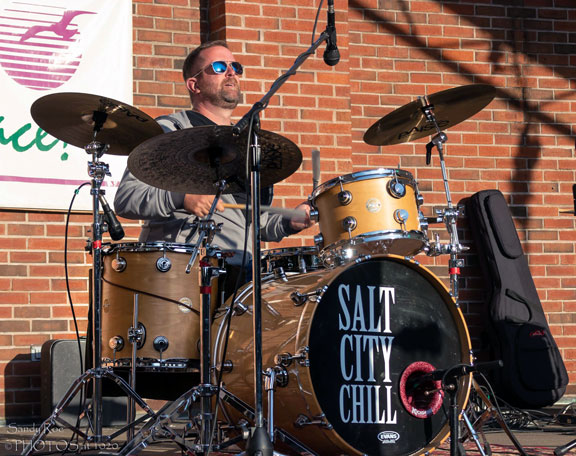
I’d say my favorite part of being a musician is the wealth of opportunities it has allowed me. The people I have met and the places it has brought me has been amazing.
CS: Good. How did you get started in music?
PS: I started in an elementary school program. I was fortunate to grow up in a town that supported and valued music education. Most of the teachers in the area were players looking back at the experience they brought. It was invaluable. Our town also had a tradition of producing good drummers. So, I had a lot of mentors and peer competition driving the journey.
CS: What do you love most about being a musician?
PS: Of course the fulfillment you get from performing and connecting musically with others. That is hard to put into words and describe. I’d say my favorite part of being a musician is the wealth of opportunities it has allowed me. The people I have met and the places it has brought me has been amazing.
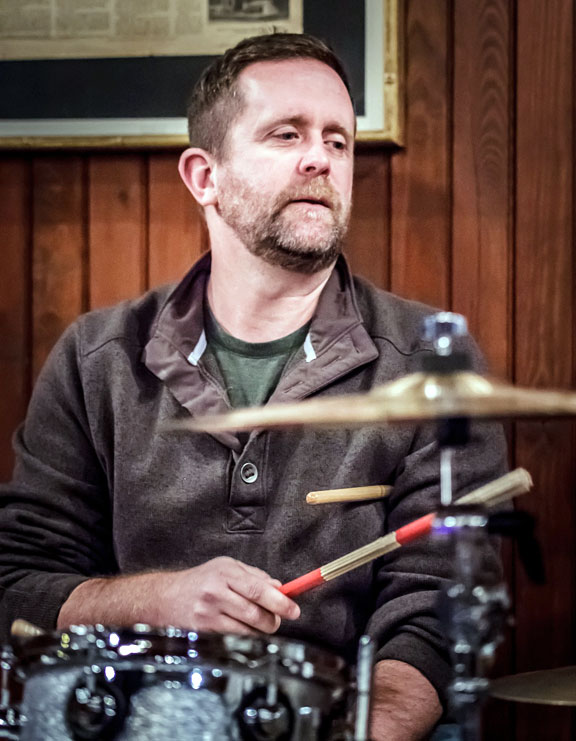
I play from a different place. A little more heart and soul and less ego.
CS: You were a national champ drummer, yes? Please tell us about that and what was involved. Tell us that story.
PS: Haha – Yes. I had the honor of being a member of the McDonald’s All American Band. It was a whole nomination and audition process and they pick the best two musicians from each state and form a band to perform at Macy’s parade as well as the rose parade and fiesta bowl among other things. It was a great opportunity and really was an eye opener to the talent. It has since been replaced with their basketball program. My running overused joke when people ask about it is “if I was a basketball player I’d be a millionaire. But I played drums so I got a sweet Members Only jacket!”
CS: Haha – You toured with Lou Rawls. Please tell that story.
PS: Ha – Yes, it was a knowing the right guy at the right time story. I was playing with a guy who had played with most of Lou’s band in other projects. He had a bunch of dates on the East coast he needed covered. And through the recommendation of Tommy I was handed the opportunity. Super talented band, super patient with me. Grew a lot. I draw on that a lot when playing with younger musicians.
CS: Other musical / career highlights:
PS: I had a lot of early success and played a ton. Back in the day a lot of club work was Tuesday through Saturday so you could be as busy as you wanted to be. After moving to Syracuse I didn’t play for 10 years. But, starting to play again is probably the highlight. Technically, I probably don’t have the chops I used to have – not enough time in the woodshed to get them back. But, I play from a different place. A little more heart and soul and less ego.
CS: Funny war story … your turn.
PS: Most of the good ones aren’t suitable for print! Just kidding. I showed up for a three-day run with a band and one of the guys shows up without any luggage. When asked where his gear was, he pulled a pair of underwear out of his pocket. That was a funny one. Now it is anyway.

Be humble and teachable. Be prepared, know the difference between practice and rehearsal and play as much as possible.
CS: You teach as well. What are the top 3 things you stress to your students.
PS: That’s a tough question. I have somewhat of a game plan or curriculum to my teaching, but, I try to tailor it to the individual. I try to preach the importance of good technique and knowing the language. But if I had to pick three: Learn the difference between playing and practicing. Second, It’s an old saying that one of my teachers used to tell me: “Embrace the suck.” Identifying your weaknesses and taking them on is the fastest route to success. Avoiding them breeds mediocrity. Lastly, always end your practice routine with a victory, try not to put your sticks down feeling defeated and frustrated.
CS: Who are you listening to?
PS: Right now I’m listening to a lot of singer songwriter stuff. Foy Vance was my last album purchase. My moods dictate a lot. Drummers I listen to are generally the pocket guys Gadd, Jordan, the late Carlos Vega, Toss Panos. Guys like that.
CS: The artists and projects you work with:
PS: I am currently playing with Salt City Chill and Butternut Creek Revival and I am involved in the monthly tribute series at The Ridge. I also sub with a few other groups when my schedule allows.
CS: Your advice to the up-and-comers?
PS: Be humble and teachable. Be prepared, know the difference between practice and rehearsal and play as much as possible.
CS: Best place to stay in touch with your music endeavors?
PS: Both bands have web sites and Facebook sites. I do have a Facebook page Phil Smith drums but I’m admittedly horrible about keeping it up to date.
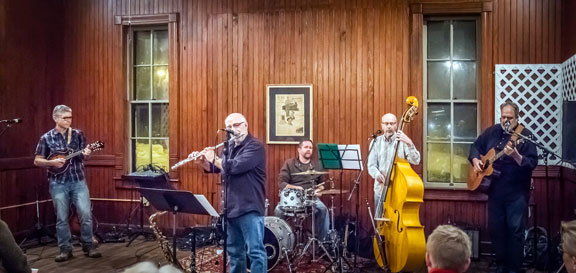
I am currently playing with Salt City Chill and Butternut Creek Revival and I am involved in the monthly tribute series at The Ridge. I also sub with a few other groups when my schedule allows.

